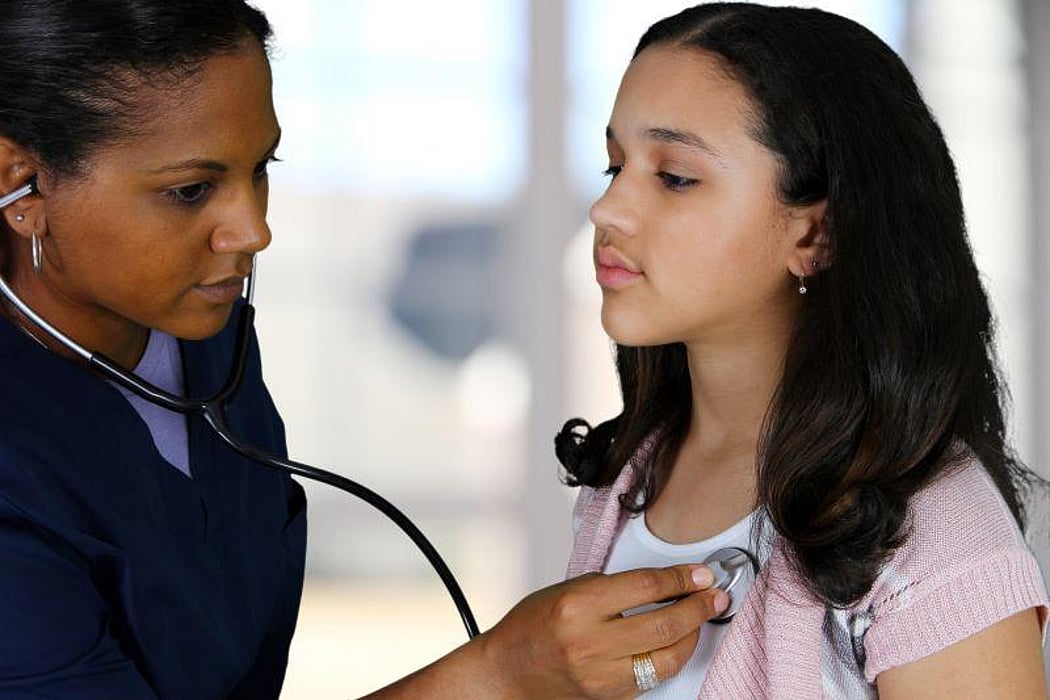PM₂.₅ Exposure Linked to Ventricular Arrhythmias in Teens

WEDNESDAY, Sept. 14, 2022 (HealthDay News) -- For adolescents, exposure to fine particulate matter (fine particles with aerodynamic diameters ≤2.5 µm [PM2.5]) is associated with an acute increase in the number of ventricular arrhythmias, according to a study published online Sept. 14 in the Journal of the American Heart Association.
Fan He, Ph.D., from the Pennsylvania State University College of Medicine in Hershey, and colleagues examined the association and time course between PM2.5 exposure with cardiac arrhythmias in a study involving 322 adolescents. Individual-level 24-hour PM2.5 concentrations were obtained with a nephelometer, and concurrent 24-hour electrocardiogram data were obtained using a Holter monitor.
The researchers found that PM2.5 exposure was associated with an acute increase in the number of premature ventricular contractions (PVCs); specifically, there was a 2 percent increase in PVC counts 0.5 to 1.0, 1.0 to 1.5, and 1.5 to 2.0 hours after exposure to a 10 µg/m3 increase in PM2.5 concentration. Cumulatively, an increment of 10 µg/m3 in PM2.5 was associated with a 5 percent increase in PVC counts within two hours. There was no association observed for PM2.5 concentration with premature atrial contraction.
"Such an adverse health effect of PM2.5 on cardiac arrhythmia was observed in this low-risk population in an environment with PM2.5 concentrations well below the U.S. Environmental Protection Agency-mandated, health-based air quality standards," the authors write.
Was this page helpful?
Related Posts
La artritis es un azote en todo el mundo
MIÉRCOLES, 2 de marzo de 2021 (HealthDay News) -- La osteoartritis se ha vuelto...
Malnutrition Linked to Poor Outcomes for Hospitalized IBD Patients
TUESDAY, Jan. 31, 2023 (HealthDay News) -- For hospitalized inflammatory bowel...
Surgical Stabilization Beneficial for Odontoid Fractures
WEDNESDAY, Aug. 9, 2023 (HealthDay News) -- For patients with odontoid...
Living Guideline Updated for Drug Treatment of COVID-19
MONDAY, April 25, 2022 (HealthDay News) -- In the living guideline developed by...
